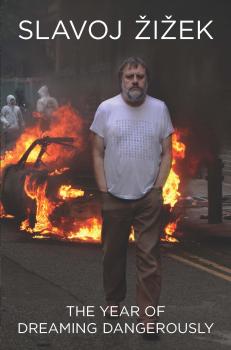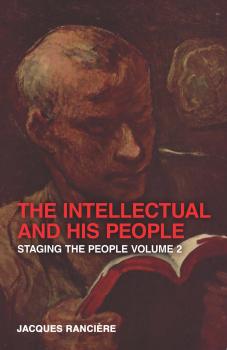ТОП просматриваемых книг сайта:
Философия
Различные книги в жанре Философия, доступные для чтения и скачиванияАннотация
Henri Lefebvre saw Marx as an ‘unavoidable, necessary, but insufficient starting point’, and always insisted on the importance of Hegel to understanding Marx. Metaphilosophy also suggested the significance he ascribed to Nietzsche, in the ‘realm of shadows’ through which philosophy seeks to think the world. Hegel, Marx, Nietzsche: or the Realm of the Shadows proposes that the modern world is, at the same time, Hegelian in terms of the state, Marxist in terms of the social and society and Nietzschean in terms of civilisation and its values. As early as 1939, Lefebvre had pioneered a French reading of Nietzsche that rejected the philosopher’s appropriation by fascists, bringing out the tragic implications of Nietzsche’s proclamation that ‘God is dead’ long before this approach was followed by such later writers as Foucault, Derrida and Deleuze. Forty years later, in the last of his philosophical writings, Lefebvre juxtaposed the contributions of the three great thinkers, in a text that’s themes remain surprisingly relevant today.
Аннотация
Althusser delivered these lectures on Rousseau's Discourse on the Origins of Inequality at the Ecole normale superieure in Paris in 1972. They are fascinating for two reasons. First, they gave rise to a new generation of Rousseau scholars, attentive not just to Rousseau's ideas, but also to those of his concepts that were buried beneath metaphors or fictional situations and characters. Second, we are now discovering that the «late Althusser's» theses about aleatory materialism and the need to break with the strict determinism of theories of history in order to devise a new philosophy «for Marx» were being worked out well before 1985 in this reading of Rousseau dating from twelve years earlier, which introduces into Rousseau's text the ideas of the void, the accident, the take, and the necessity of contingency.
Аннотация
Classic study of Jewish libertarian thought, from Walter Benjamin to Franz Kafka Towards the end of the nineteenth century, there appeared in Central Europe a generation of Jewish intellectuals whose work was to mark modern culture. Drawing at once on the traditions of German Romanticism and Jewish messianism, their thought was organized around the cabalistic idea of the ‘tikkoun’: redemption. Redemption and Utopia uses the concept of ‘elective affinity’ to explain the surprising community of spirit that existed between redemptive messianic religious thought and the wide variety of radical secular utopian beliefs held by this important group of intellectuals. The author outlines the circumstances that produced this unusual combination of religious and non-religious thought and illuminates the common assumptions that united such seemingly disparate figures as Martin Buber, Kafka, Walter Benjamin and Georg Lukács.
Аннотация
A journey through twentieth-century philosophy with the titan of French thought. Pocket Pantheon is an invitation to engage with the greats of postwar Western thought, such as Lacan, Sartre and Foucault, in the company of one of today's leading political and philosophical minds. Alain Badiou draws on his encounters with this pantheon – his teachers, opponents and allies – to offer unique insights into both the authors and their work. These studies form an accessible, authoritative distillation of continental theory and a capsule history of a period in Western thought.
Аннотация
Acclaimed author follows the work of the Situationist International after May 1968. Following his acclaimed history of the Situationist International up until the late sixties, The Beach Beneath the Street, McKenzie Wark returns with a companion volume which puts the late work of the Situationists in a broader and deeper context, charting their contemporary relevance and their deep critique of modernity. Wark builds on their work to map the historical stages of the society of the spectacle, from the diffuse to the integrated to what he calls the disintegrating spectacle. The Spectacle of Disintegration takes the reader through the critique of political aesthetics of former Situationist T.J. Clark, the Fourierist utopia of Raoul Vaneigem, René Vienet’s earthy situationist cinema, Gianfranco Sangunetti’s pranking of the Italian ruling class, Alice-Becker Ho’s account of the anonymous language of the Romany, Guy Debord’s late films and his surprising work as a game designer. At once an extraordinary counter history of radical praxis and a call to arms in the age of financial crisis and the resurgence of the streets, The Spectacle of Disintegration recalls the hidden journeys taken in the attempt to leave the twentieth century, and plots an exit from the twenty first.
Аннотация
The renowned philosopher finds a utopian future in worldwide protests. Call it the year of dreaming dangerously: 2011 caught the world off guard with a series of shattering events. While protesters in New York, Cairo, London, and Athens took to the streets in pursuit of emancipation, obscure destructive fantasies inspired the world’s racist populists in places as far apart as Hungary and Arizona, achieving a horrific consummation in the actions of mass murderer Anders Breivik. The subterranean work of dissatisfaction continues. Rage is building, and a new wave of revolts and disturbances will follow. Why? Because the events of 2011 augur a new political reality. These are limited, distorted—sometimes even perverted—fragments of a utopian future lying dormant in the present.
Аннотация
Rethinking the role of the radical public intellectual. Following the previous volume of essays by Jacques Rancière from the 1970s, Staging the People: The Proletarian and His Double , this second collection focuses on the ways in which radical philosophers understand the people they profess to speak for. The Intellectual and His People engages in an incisive and original way with current political and cultural issues, including the “discovery” of totalitarianism by the “new philosophers,” the relationship of Sartre and Foucault to popular struggles, nostalgia for the ebbing world of the factory, the slippage of the artistic avant-garde into defending corporate privilege, and the ambiguous sociological critique of Pierre Bourdieu. As ever, Rancière challenges all patterns of thought in which one-time radicalism has become empty convention.
Аннотация
Imperiled Life theorizes an exit from the potentially terminal consequences of capital-induced climate change. It is a collection of reflections on the phenomenon of catastrophe—climatological, political, social—as well as on the possibilities of overcoming disaster. Javier Sethness-Castro presents the grim news from contemporary climatologists while providing a reconstructive vision inspired by anarchist intellectual traditions and promoting critical thought as a means of changing our historical trajectory. Javier Sethness-Castro is a libertarian socialist and a rights advocate. Imperiled Life is his first book.
Аннотация
David Hume is traditionally seen as a devastating critic of religion. He is widely read as an infidel, a critic of the Christian faith, and an attacker of popular forms of worship. His reputation as irreligious is well forged among his readers, and his argument against miracles sits at the heart of the narrative overview of his work that perennially indoctrinates thousands of first-year philosophy students. In Toward a Humean True Religion , Andre Willis succeeds in complicating Hume’s split approach to religion, showing that Hume was not, in fact, dogmatically against religion in all times and places. Hume occupied a “watershed moment,” Willis contends, when old ideas of religion were being replaced by the modern idea of religion as a set of epistemically true but speculative claims. Thus, Willis repositions the relative weight of Hume’s antireligious sentiment, giving significance to the role of both historical and discursive forces instead of simply relying on Hume’s personal animus as its driving force. Willis muses about what a Humean “true religion” might look like and suggests that we think of this as a third way between the classical and modern notions of religion. He argues that the cumulative achievements of Hume’s mild philosophic theism, the aim of his moral rationalism, and the conclusion of his project on the passions provide the best content for this “true religion.”










